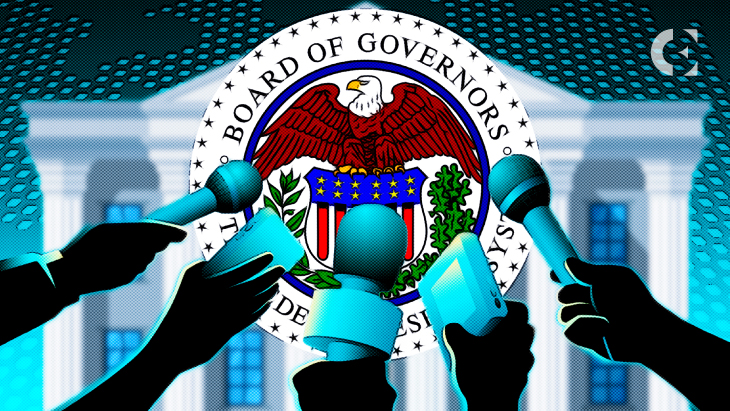- The Federal Reserve, FDIC, and OCC published a statement to alert banks about crypto risks.
- The statement claimed significant volatility and the absence of governance mechanisms as a big risk in the crypto sector.
- The agencies will be monitoring banks engaging in crypto activities.
The Board of Governors of the Federal Reserve System (Federal Reserve), the Federal Deposit Insurance Corporation (FDIC), and the Office of the Comptroller of the Currency (OCC) jointly publish a statement concerning crypto-asset-related risks for banking organizations.
In light of increased volatility in the cryptocurrency sector in 2022, the agencies have released a list of risks that banks should be aware of before dealing with digital commodities. These included risks of fraud and scams among crypto-asset sector participants, alongside legal uncertainties related to custody practices, redemptions, and ownership rights.
The listicle further establishes inaccurate or misleading representations and disclosures by crypto-asset companies, including misrepresentations regarding federal deposit insurance, and other practices a risk, and harmful to retail and institutional investors, customers, and counterparties.
Significant volatility, lack of governance mechanisms establishing oversight of the system, and the absence of contracts or standards to clearly establish roles, responsibilities, and liabilities are also featured as one major risk.
Moreover, contagion risk within the crypto-asset sector, emerging from interconnections amongst certain crypto-asset participants, including through opaque lending, investing, funding, service, and operational arrangements, was also highlighted as a risk.
The statement clarifies that while no banking organization is discouraged from enabling services to customers belonging to any specific class, the Federal Reserve agencies are carefully supervising and reviewing proposals from banks engaging with crypto activities. The document states,
Through the agencies’ case-by-case approaches to date, the agencies continue to build knowledge, expertise, and understanding of the risks crypto-assets may pose to banking organizations, their customers, and the broader U.S. financial system.
The statement finally concludes by adding that banking organizations must ensure that crypto-asset-related activities are performed after complying with with applicable laws and regulations designed to protect consumers.
Disclaimer: The information presented in this article is for informational and educational purposes only. The article does not constitute financial advice or advice of any kind. Coin Edition is not responsible for any losses incurred as a result of the utilization of content, products, or services mentioned. Readers are advised to exercise caution before taking any action related to the company.







